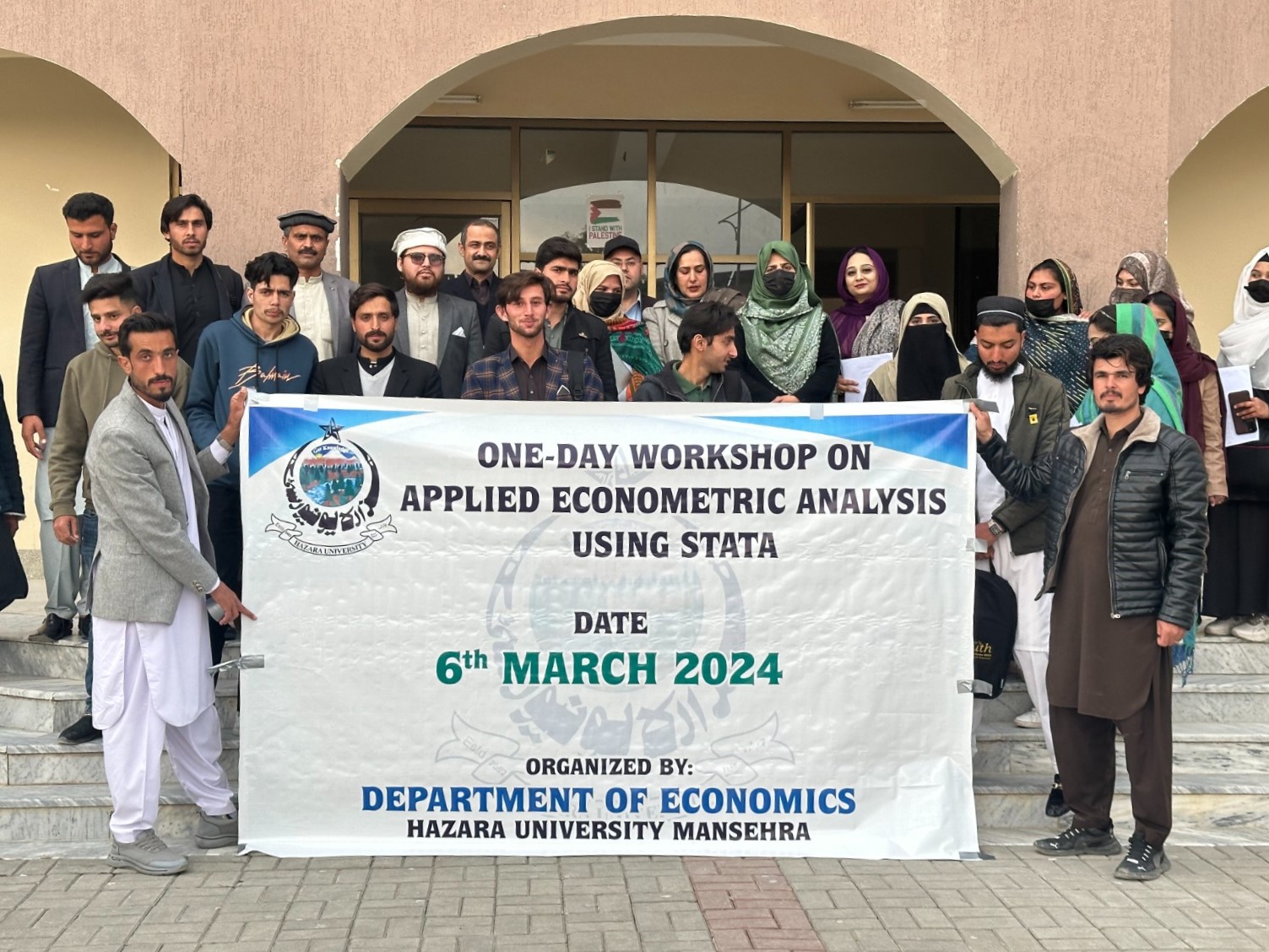One-Day Workshop on Applied Econometric Data Analysis using STATA held on 6th March 2024

One-Day Workshop on Applied Econometric Data Analysis using STATA
Under the leadership of Dr. Misbah Nosheen, Chair of the Department of Economics at Hazara University Mansehra, a one-day workshop on Applied Econometric Analysis using Stata was organized on March 6, 2024.
In her opening remarks, Dr. Misbah Nosheen welcomed attendees to the workshop. She highlighted that Stata is a comprehensive software that effectively handles various types of data. Dr. Nosheen highlighted the versatility of Stata in managing primary microdata and conducting sophisticated analysis simultaneously. Attendees were encouraged to explore the capabilities of Stata and actively participate in the sessions to enhance their econometric skills.
Workshop Structure: The workshop was structured into two sessions, each providing to different proficiency levels and aspects of data analysis: Basics of Stata: The first session provided an introductory overview of Stata software, covering fundamental concepts such as importing data, data cleaning, handling missing observations, and basic statistical analysis. Participants gained a foundational understanding of Stata's interface and basic commands. Advanced Techniques: The second session was based on advanced techniques in econometric analysis using Stata. Topics included linear regression, VECM and VAR models, ARDL, cointegration analysis, causality tests, and post-estimation techniques. Participants received hands-on training and practical insights into applying these advanced techniques to real-world research scenarios.
Diverse Participation: Attended by 40 participants including PhD students, researchers and faculty members from varied academic backgrounds and institutions, the workshop described participants from Department of Economics, Hazara University, the Psychology Department, Qurtuba University Peshawar, and the University of Peshawar.
Future Training Opportunities: Recognizing the growing importance of other data analysis tools, the Department of Economics intends to organize future workshops on R and Python programming languages. These workshops will cover various aspects of data analysis, including statistical modeling, machine learning, and data visualization. Participants will have the opportunity to enhance their skills and expand their toolkit for data analysis and research.
Positive Feedback: Participants lauded the efforts of the Department of Economics and expressed appreciation for the conducive learning environment fostered during the workshop. Certificates of participation were distributed, instilling a sense of accomplishment, and encouraging continued engagement in similar activities.
Moreover, researchers benefited from the workshop by gaining practical insights and techniques to improve their research methodologies. Additionally, faculty members of the Economics Department enhanced their skills, further enriching the academic environment and fostering continued growth within the department. Overall, the workshop served as a platform for skill development and collaboration, benefiting participants at various levels of expertise.
In the end, the Vice Chancellor and Department Chairperson expressed gratitude to the participants for their active involvement. They presented shields and certificates as tokens of appreciation for the attendees' dedication to learning.

